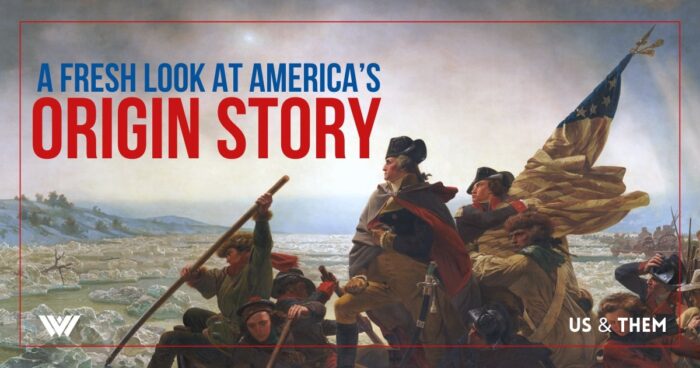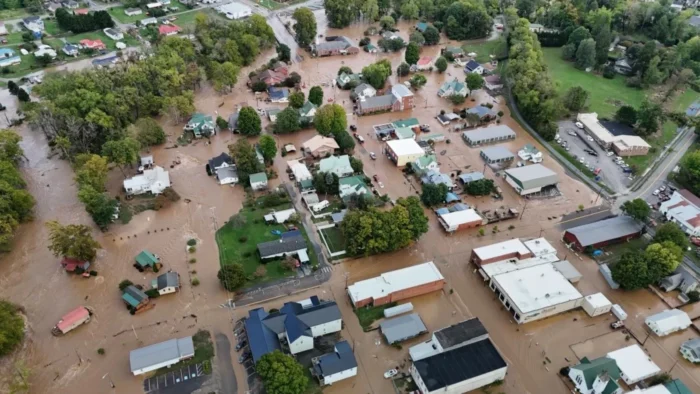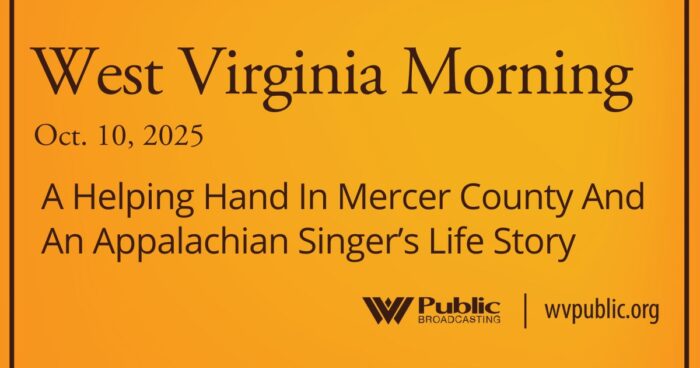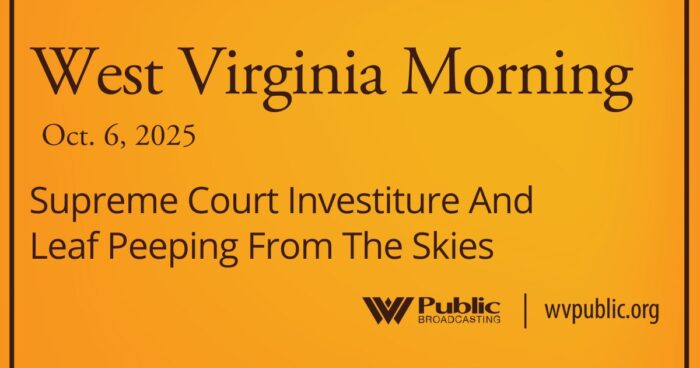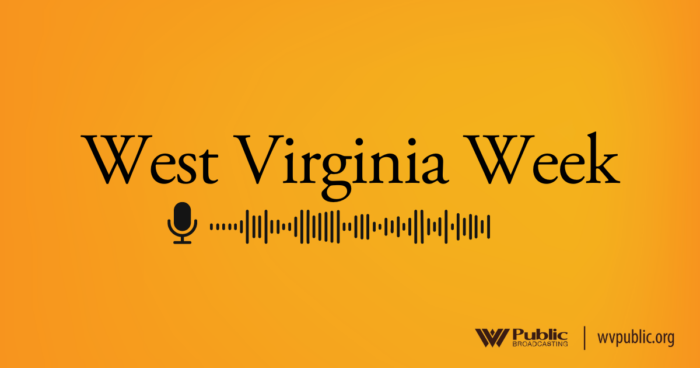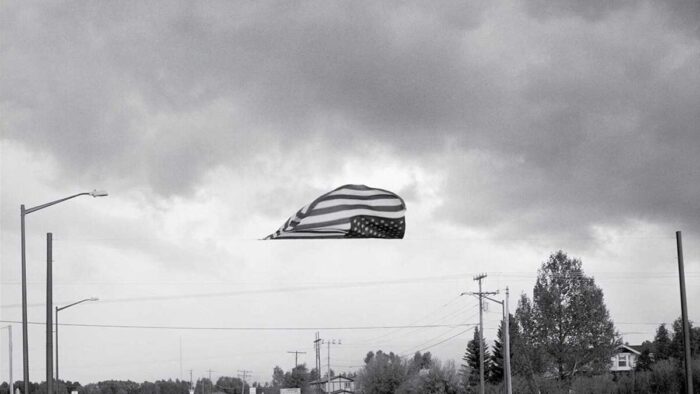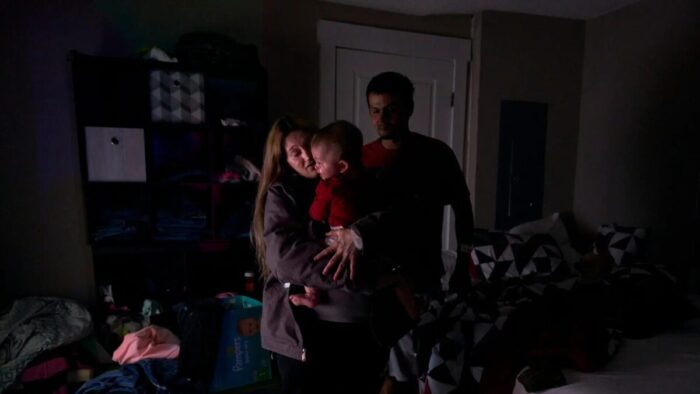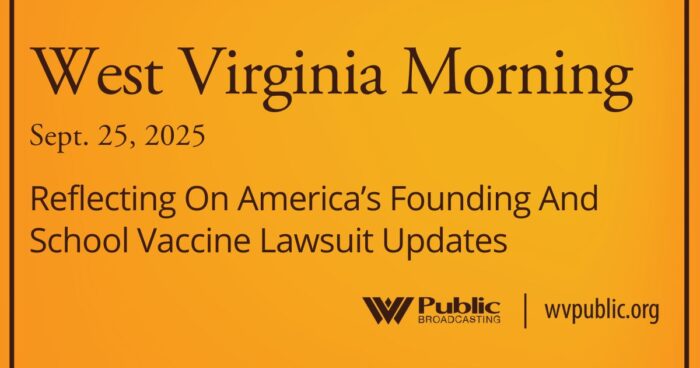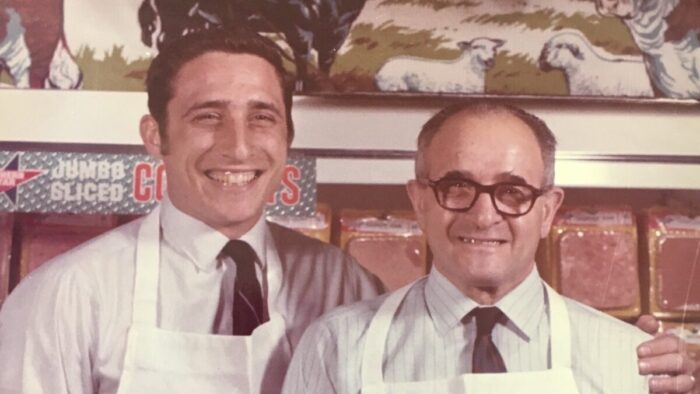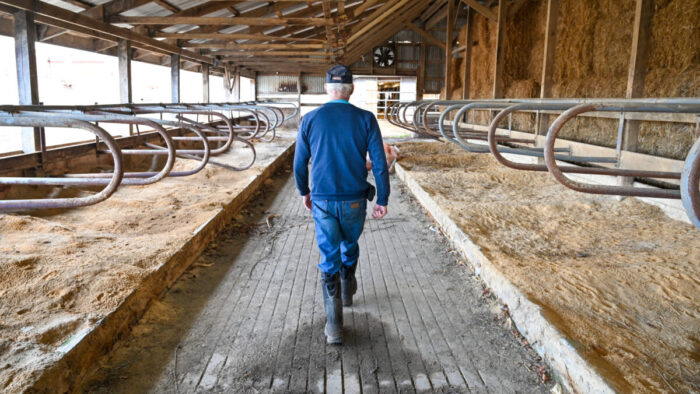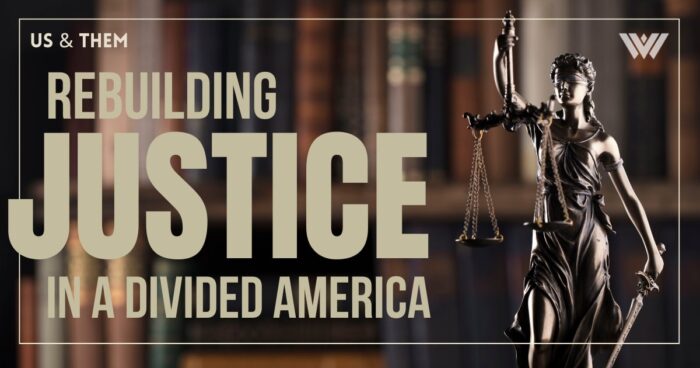 Us & Them: A Fresh Look At America’s Origin Story
Us & Them: A Fresh Look At America’s Origin Story
Description
As the United States prepares to mark the 250th anniversary of the Declaration of Independence, attention is focused on the relevance of the American Revolution to our country today.
The new episode of Us & Them spotlights a recent community event at Shepherd University in Shepherdstown, West Virginia with host Trey Kay and three top historians to talk about the realities of our revolutionary past.
Ken Burns’ upcoming PBS series The American Revolution shines a light on the war that transformed 13 colonies into a nation. This timely episode of Us & Them revisits America’s origin story with fresh eyes, probing what we remember, what we forget, and why it matters now.
This episode of Us & Them is presented with support from WETA and the CRC Foundation.
Subscribe to Us & Them on Apple Podcasts, NPR One, RadioPublic, Spotify, Stitcher or wherever you get your podcasts.
<figure class="wp-block-image size-large">
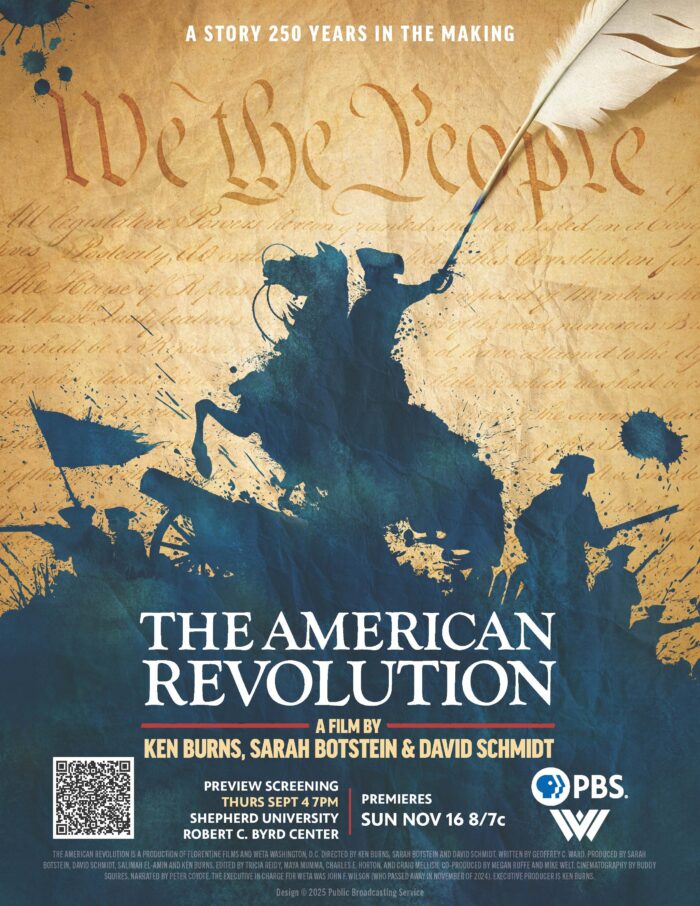 </figure>
</figure>West Virginia Public Broadcasting recently hosted a community conversation ahead of the PBS documentary series The American Revolution, produced by Ken Burns, Sarah Botstein and David Schmidt. The series, eight years in the making, premieres Sunday, Nov. 16, 2025 — on the eve of the 250th anniversary of the war’s start. The American Revolution traces how 13 British colonies rebelled, won independence and formed a new government that reshaped the continent and inspired democratic movements worldwide.
<figure class="wp-block-image size-full">
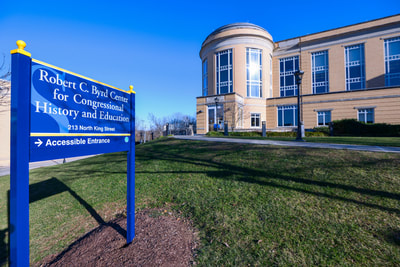 <figcaption class="wp-element-caption">West Virginia Public Broadcasting’s sneak preview of The American Revolution took place Sept. 4, 2025, at the Robert C. Byrd Center for Congressional History and Education on the Shepherd University campus in Shepherdstown, West Virginia.
<figcaption class="wp-element-caption">West Virginia Public Broadcasting’s sneak preview of The American Revolution took place Sept. 4, 2025, at the Robert C. Byrd Center for Congressional History and Education on the Shepherd University campus in Shepherdstown, West Virginia. Photo courtesy of the Byrd Center</figcaption></figure>
Learn more about the Robert C. Byrd Center for Congressional History and Education.
Learn more about Shepherd University.
<figure class="wp-block-image size-large">
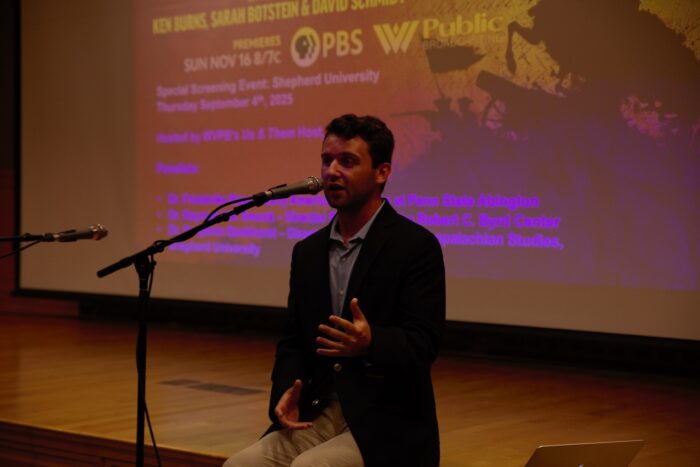 <figcaption class="wp-element-caption">Zachary Dougherty, director of the Robert C. Byrd Center for Congressional History and Education, welcomes attendees to WVPB’s preview of The American Revolution. The Byrd Center preserves congressional archives and fosters public understanding of the legislative process and American democracy.
<figcaption class="wp-element-caption">Zachary Dougherty, director of the Robert C. Byrd Center for Congressional History and Education, welcomes attendees to WVPB’s preview of The American Revolution. The Byrd Center preserves congressional archives and fosters public understanding of the legislative process and American democracy. Photo Credit: Liz McCormick/West Virginia Public Broadcasting</figcaption></figure>
<figure class="wp-block-image size-large">
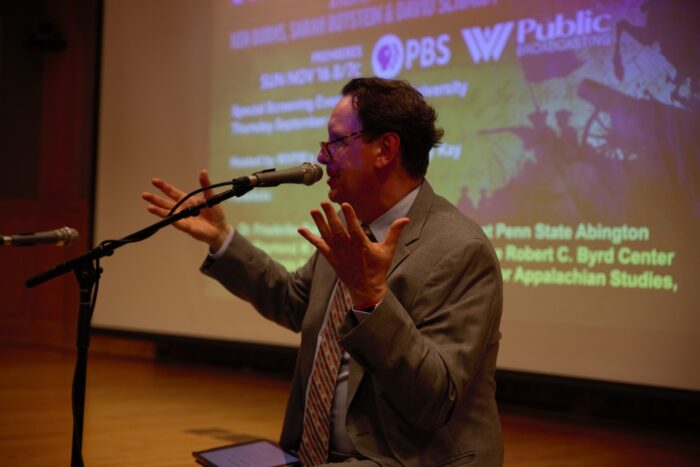 <figcaption class="wp-element-caption">Trey Kay, host of Us & Them, moderated the event. He told the audience he wanted to use scenes from The American Revolution as a springboard for a conversation about what the Revolution means today.
<figcaption class="wp-element-caption">Trey Kay, host of Us & Them, moderated the event. He told the audience he wanted to use scenes from The American Revolution as a springboard for a conversation about what the Revolution means today. Photo Credit: Liz McCormick/West Virginia Public Broadcasting</figcaption></figure>
<figure class="wp-block-image size-large">
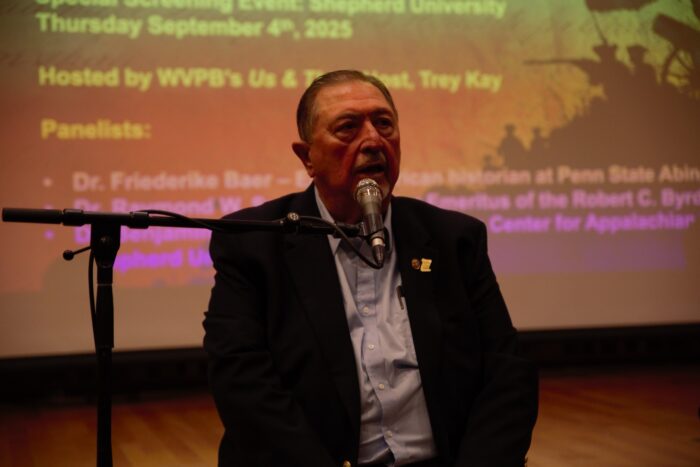 <figcaption class="wp-element-caption">Raymond Smock, director emeritus of the Robert C. Byrd Center for Congressional History and Education and former historian of the U.S. House of Representatives.
<figcaption class="wp-element-caption">Raymond Smock, director emeritus of the Robert C. Byrd Center for Congressional History and Education and former historian of the U.S. House of Representatives. Photo Credit: Liz McCormick/West Virginia Public Broadcasting</figcaption></figure>
“What came out of this revolution is not a myth. It was a new order for the ages—the idea in the Declaration of Independence that "we hold these truths to be self-evident, that all men are created equal.” Eventually that applies to women; it applies to everybody, and we’re still unfolding that story. … We overthrew a king in an age of kings and emperors; in Japan there were shoguns; and we created this new thing. There’s nothing mythological about that — that’s powerful.”
— Raymond Smock, director emeritus of the Robert C. Byrd Center for Congressional History and Education
Learn more about the Raymond Smock Papers Collections.
<figure class="wp-block-image size-large">
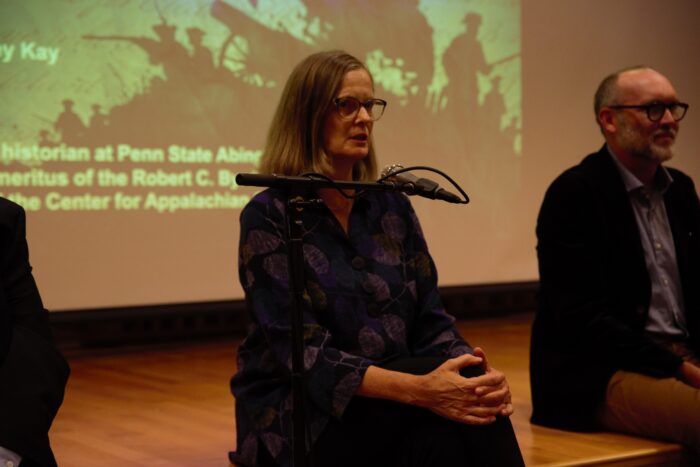 <figcaption class="wp-element-caption">Friederike Baer, an early American historian at Penn State Abington, is the author of Hessians: German Soldiers in the American Revolutionary War and appears in Ken Burns’ PBS series The American Revolution.
<figcaption class="wp-element-caption">Friederike Baer, an early American historian at Penn State Abington, is the author of Hessians: German Soldiers in the American Revolutionary War and appears in Ken Burns’ PBS series The American Revolution. Photo Credit: Liz McCormick/West Virginia Public Broadcasting</figcaption></figure>
“I think this is a war that is romanticized. … I grew up in Germany but went to undergrad and graduated in the United States. When I learned about the American Revolution, it was very much about the ideological origins of the revolution — which is really important, of course. We’re a founding republic; it’s radical in many ways. But the war itself was almost overlooked. It wasn’t until much later that I realized this was not just a long war — it was a violent war.
All wars are violent, you could argue, but because of the civil war nature of this conflict, and also the frontier violence in North America, the horrors people witnessed and experienced were truly horrific when you read the primary sources.”
— Friederike Baer, historian at Penn State Abington
Learn more about Dr. Baer’s book Hessians: German Soldiers in the American Revolutionary War.
<figure class="wp-block-image size-large">
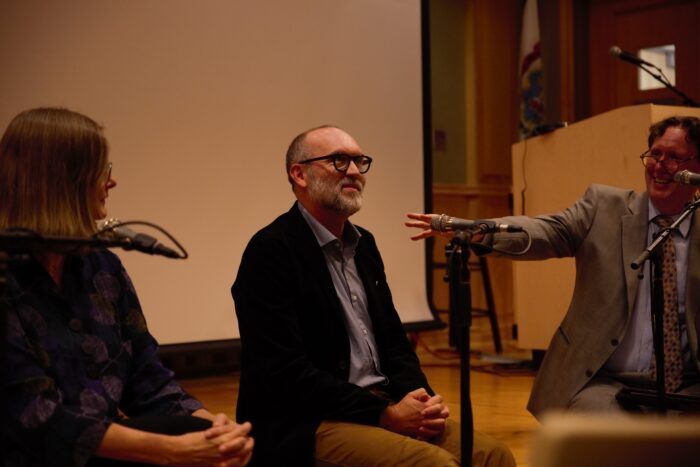 <figcaption class="wp-element-caption">Benjamin Bankhurst, associate professor of history and director of the Center for Appalachian Studies at Shepherd University.
<figcaption class="wp-element-caption">Benjamin Bankhurst, associate professor of history and director of the Center for Appalachian Studies at Shepherd University. Photo Credit: Liz McCormick/West Virginia Public Broadcasting</figcaption></figure>
“John Adams, looking back after the war, tried to make sense of a conflict his generation spent a lifetime parsing. He recalled America split into ‘hot patriots,’ ‘vile Tories,’ and a quiet third who went with whoever held power. The modern consensus says that’s off—perhaps only 10% to 15% stayed loyal. The larger point stands: the revolution was a long war, not a simple us-versus-them story. It was a war of ideas among Americans as much as a fight against an external foe. … Here in the Shenandoah Valley, divisions ran deep; within months of the Beeline March, Continental soldier James Morgan was murdered by a Loyalist gang near Martinsburg, bayonete

